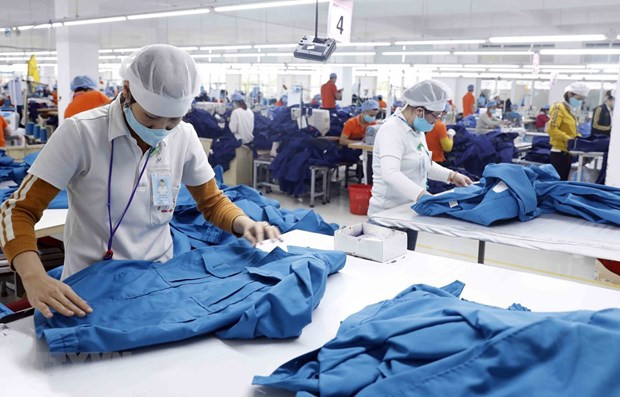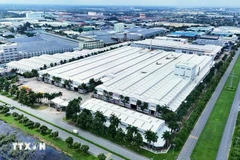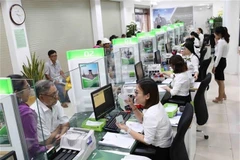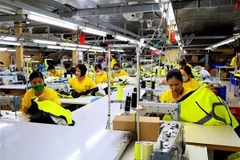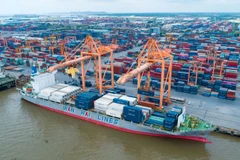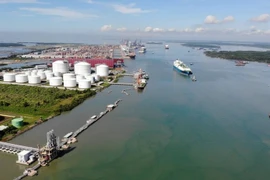Hanoi (VNA) - In the past few days, many international newspapers have published articles hailing Vietnam’s development achievements in 2020 and forecasting bright prospects of the country’s economic growth in upcoming years.
The Strait Times writes, “The Southeast Asian nation has done remarkably well economically despite being hit hard by the Covid-19 pandemic. It registered 2.9 per cent growth last year, the best performance in the region against its neighbours' largely negative growth rates.”
According to Strait Times, one key reason for Vietnam’s success is that it dealt with the pandemic quickly and effectively, within days of China announcing its first cases, mobilizing Vietnam's 100 million citizens to assist in detecting infected people and tracing contacts. It had reported just over 1,500 cases and 35 deaths prior to the latest resurgence of infections last month.
“This quick control of the pandemic allowed it to reopen its economy by the end of April last year and focus on recovery,” it writes.
One of the goals in its five-year economic development plan approved by the 13th National Party Congress is to double the country's GDP from last year's baseline by 2025. It has also maintained its longer-term goal of becoming a high-income country by 2045, up from its current lower-middle-income status.
According to Straits Times, Vietnam's economic success in the past three decades has been the result of the government's decision to introduce doi moi, or renovation - a series of economic and political reforms, in 1986.
Since then, Vietnam has signed several more trade agreements, including one with the European Union that went into effect last year, as well as joining the 11-nation Comprehensive and Progressive Agreement for Trans-Pacific Partnership and the 15-nation Regional Comprehensive Economic Partnership.
With the help of foreign firms looking for a cheaper alternative to China, Vietnam became a manufacturing hub in South-east Asia, with apparel manufacturers and electronic behemoths alike establishing factories there.
By 2017, it had become the region's largest exporter of clothing and second-largest exporter of electronic goods.
Vietnam's economy grew by at least 5 per cent a year from 2010, hitting 7 per cent in 2018 and 2019. It was expected to grow by 6.5 per cent last year until Covid-19 hit.
Vietnam’s government also looks to attract higher-quality investment, which would allow the country to move up the value chain into more productive and higher-earning areas, as well as reduce pollution.
While analysts are optimistic about Vietnam's ability to continue growing and developing – even becoming the next Asian miracle – there are obstacles to some of its goals, not the least of which is the negative economic impact of a pandemic that has yet to run its course. Other problems include a shortage of highly skilled workers, a need for better infrastructure and inefficient state-owned firms.
Sharing the view with Strait Times, the Australian Financial Review forecasts Vietnam to be among the biggest economic success stories in the world besides the Republic of Korea and Mexico.
It explains how the success story began in 1986, when the Communist Party of Vietnam's Sixth National Congress adopted the Doi Moi policy, which shifted the country away from a command economy and toward a more market-oriented model.
According to the Australian Financial Review, “Vietnam’s impressive management of the COVID-19 pandemic has given the economy an additional shot in the arm. The country’s low crude mortality rate of 0.4 COVID-19 deaths per million people and 2.9 per cent economic growth in 2020 - a year when most economies shrank - are remarkable achievements, the Australian Financial Review states”./.
